#And block women
Text
Some important cross-server ball hosted by King Ren
Hausemaster: X did you give him permission to rule like that?
Xisuma: Nope
Pyro: Do you want us to do something about it?
Xisuma: Nope
Kenzie: We are 100% on board with doing something about it.
Xisuma: I've already broken the minds of five of his servants and guards using my Void magic. All I had to to was speak to them. Once he figures out that something like me has it out for him, he'll go running for the hills and all will be business as usual.
Tristan: You are a horrible person.
Xisuma: And that's coming from you?
#2b2t#Minecraft#Silly block men go brrrr#And block women#Stan Popbob#Hermitcraft#Hausemaster#Housemaster#Xisuma#Xisumavoid#Little menace#The man has some hardcore gremlin energy#Ren#Rentheking#Renthedog#While Xisuma technically harbors no ill will towards Ren#he's still a little shit#and the God of the Void#Pyrobyte#King Pyro#Popbob#Mackenzie#iTristan#iGriefedThis#Please don't hurt me mr. hacker man#I am a mere gay bitch
9 notes
·
View notes
Text
Idk what trans man needs to hear this but you're NOT evil or disgusting for being a man. You do NOT have to suffer for the sins of the patriarchy committed by cis dudes. Being a man doesn't invalidate the misogyny you experienced growing up or experience now. Being a man doesn't mean you deserve to be isolated. Being a man doesn't mean you're inherently predatory or scary. You didn't "choose" this, and finding your true self is NOT "betraying the community" because you happen to be a man and/or masculine rather than a woman and/or feminine. You ARE allowed to be upset when people "affirm" your gender by malgendering you.
You DO deserve a community that uplifts you. You DO deserve to experience trans joy. You DO deserve to have your voices heard and your struggles recognized. Wanting the bare minimum of solidarity is NOT "making everything about trans men".


#transgender#trans#transmasc#transmen#trans men#trans masc#transmasculine#transmascs#anti transmasculinity#transandrophobia#queer#lgbt#gender#genderqueer#affirmations#if you respond to this with something transmisogynistic and/or imply all trans women hate us i will block you <3
9K notes
·
View notes
Text
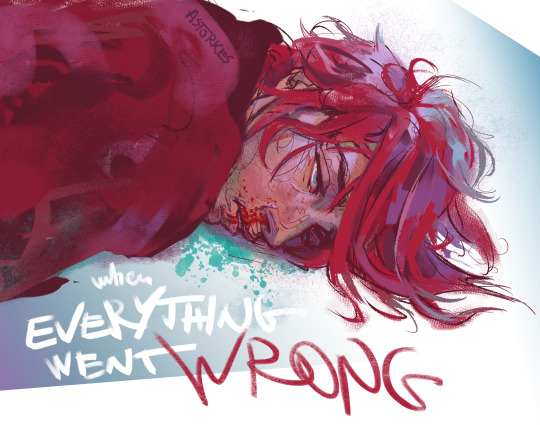
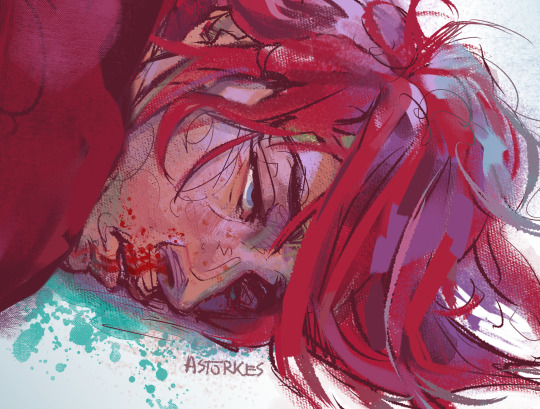

well, her guard needs work
#my life be feeling like this nowadays so thought i'd redraw this scene#more beat up vi probably incoming cuz this helped#i love it when my women block with their face#arcane#vi#arcane vi#arcane vi fanart#league of legends#league of legends vi#lol vi#vi fanart#arcane fanart#fanart#my art
4K notes
·
View notes
Text
10 Ways to Add Sizzle to Your Boring Writing
Writing that sizzles captures the reader's attention and keeps them engaged from start to finish. Whether you're an experienced writer or just starting out, there are several techniques you can use to make your writing more exciting and dynamic. Here are ten detailed ways to add sizzle to your boring writing:
1. Use Vivid Descriptions
Vivid descriptions bring your writing to life by creating a rich, immersive experience for the reader. Instead of relying on generic or bland language, use specific details that appeal to the senses. Describe how things look, sound, smell, taste, and feel to paint a vivid picture.
In Detail:
Visual Descriptions: Use color, shape, and size to create a mental image. Instead of saying "The car was old," say "The rusty, olive-green car wheezed as it pulled into the driveway."
Sound Descriptions: Incorporate onomatopoeia and detailed sound descriptions. Instead of "The music was loud," say "The bass thumped, and the high notes pierced through the night air."
Smell and Taste Descriptions: Use sensory language. Instead of "The food was good," say "The aroma of roasted garlic and herbs filled the room, and the first bite was a burst of savory flavors."
2. Show, Don't Tell
"Show, don't tell" is a fundamental writing principle that means revealing information through actions, thoughts, dialogue, and sensory details rather than straightforward exposition. This approach makes your writing more engaging and allows readers to experience the story.
In Detail:
Actions Over Exposition: Instead of telling the reader "Jane was scared," show her fear through her actions: "Jane's hands trembled as she fumbled with the lock, her breath coming in shallow gasps."
Dialogue: Use conversations to reveal character traits and emotions. Instead of "John was angry," show his anger through his words and tone: "John's voice was a low growl as he said, 'I can't believe you did this.'"
Internal Thoughts: Reveal characters' inner worlds. Instead of "Emma felt relieved," show her relief: "Emma let out a long breath she didn't realize she was holding and sank into the chair, a smile tugging at her lips."
3. Create Relatable Characters
Relatable characters are crucial for keeping readers invested in your story. Characters should have depth, including strengths, weaknesses, desires, and fears. When readers see aspects of themselves in your characters, they're more likely to care about their journeys.
In Detail:
Character Flaws: Give your characters realistic flaws. A perfect character can be boring and unrelatable. Show how these flaws impact their decisions and relationships.
Character Arcs: Ensure your characters grow and change throughout the story. A well-crafted character arc can turn a good story into a great one.
Background and Motivations: Provide backstories and motivations. Why does your character act the way they do? What drives them? This adds depth and makes them more three-dimensional.
4. Add Dialogue
Dialogue can break up large blocks of text and make your writing more dynamic. It reveals character, advances the plot, and provides opportunities for conflict and resolution. Ensure your dialogue sounds natural and serves a purpose.
In Detail:
Natural Speech: Write dialogue that sounds like real conversation, complete with interruptions, pauses, and colloquial language. Avoid overly formal or stilted speech.
Purposeful Dialogue: Every line of dialogue should have a purpose, whether it's revealing character, advancing the plot, or building tension. Avoid filler conversations that don't add to the story.
Subtext: Use subtext to add depth. Characters might say one thing but mean another, revealing their true feelings through what they don't say directly.
5. Use Strong Verbs
Strong verbs make your writing more vivid and energetic. They convey action and emotion effectively, making your sentences more powerful and engaging.
In Detail:
Action Verbs: Choose verbs that show precise actions. Instead of "She went to the store," say "She dashed to the store."
Avoid Weak Verbs: Replace weak verbs and verb phrases with stronger alternatives. Instead of "He was walking," say "He strode."
Emotionally Charged Verbs: Use verbs that convey specific emotions. Instead of "She was sad," say "She wept."
6. Vary Sentence Structure
Varying sentence structure keeps your writing interesting and prevents it from becoming monotonous. Mix short, punchy sentences with longer, more complex ones to create a rhythm that engages readers.
In Detail:
Short Sentences for Impact: Use short sentences to create tension, urgency, or emphasize a point. "He stopped. Listened. Nothing."
Complex Sentences for Detail: Use longer sentences to provide detailed descriptions or explain complex ideas. "As the sun set behind the mountains, the sky transformed into a canvas of oranges, pinks, and purples, casting a warm glow over the serene landscape."
Combine Different Structures: Mix simple, compound, and complex sentences to maintain a natural flow. Avoid repetitive patterns that can make your writing feel flat.
7. Introduce Conflict
Conflict is the driving force of any story. It creates tension and keeps readers invested in the outcome. Without conflict, your story can become stagnant and uninteresting.
In Detail:
Internal Conflict: Characters should struggle with internal dilemmas, fears, and desires. This adds depth and relatability.
External Conflict: Introduce obstacles and challenges that characters must overcome. This can be other characters, societal pressures, or natural forces.
Resolution: Show how conflicts are resolved, leading to character growth and plot progression. Ensure resolutions feel earned and satisfying.
8. Use Metaphors and Similes
Metaphors and similes add creativity and depth to your writing. They help readers understand complex ideas and emotions by comparing them to familiar experiences.
In Detail:
Metaphors: Directly state that one thing is another to highlight similarities. "Time is a thief."
Similes: Use "like" or "as" to make comparisons. "Her smile was like sunshine on a rainy day."
Avoid Clichés: Create original comparisons rather than relying on overused phrases. Instead of "busy as a bee," find a fresh analogy.
9. Create Suspense
Suspense keeps readers on the edge of their seats, eager to find out what happens next. Use foreshadowing, cliffhangers, and unanswered questions to build tension and anticipation.
In Detail:
Foreshadowing: Drop subtle hints about future events. This creates anticipation and a sense of inevitability.
Cliffhangers: End chapters or sections with unresolved tension or unanswered questions to compel readers to keep going.
Pacing: Control the pace of your story to build suspense. Slow down for crucial moments and speed up during action scenes.
10. Edit Ruthlessly
Great writing often emerges during the editing process. Be willing to cut unnecessary words, tighten your prose, and refine your sentences. Editing improves clarity, pace, and overall readability.
In Detail:
Cut Redundancies: Remove unnecessary words and repetitive phrases. "In my opinion, I think" can be reduced to "I think."
Focus on Clarity: Ensure each sentence conveys its intended meaning clearly and concisely.
Proofread: Check for grammar, punctuation, and spelling errors. A polished manuscript reflects professionalism and attention to detail.
#writeblr#writing#creative writing#thewriteadviceforwriters#writing tips#writers block#on writing#writers and poets#how to write#novel writing#writing blog#writing advice#writer#authoradvice#author#book writing#women writers#fiction#authors on tumblr#novelist#writer stuff#female writers#fiction writing#fantasy novel#novel
5K notes
·
View notes
Text

#beyonce#beyonce knowles#cowboy carter#solange#solange knowles#black girl moodboard#black girl aesthetic#black women#black girl luxury#blackgirlmagic#blacktumblr#soft life#black girl magic#black girl hair#melanin#soft moodboard#black love#blackout#black girls travel#braids#summer#block party#black girl#luxury lifestyle#rich black women#educated black women#black women in luxury#natural black women#harper's bazaar#black blonde
1K notes
·
View notes
Text
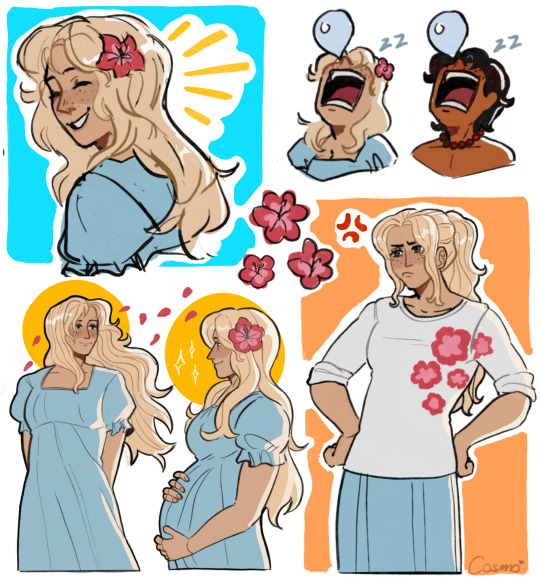
The real reason Oda had to get rid of her was not for plot convenience, but bc she would have kicked everyone’s ass. (Source: trust me bro)
#Art block auggh but must draw pretty lady aauugghh#also fr thought you mean to tell me this lady with the D. in her name wasn’t out here being an absolute menace#like I feel like she and Roger had to be in the same wavelength of fuckass crazy like cmon now#Rouge and Roger backstory when? (I am delusional)#also her being portrayed as this saintly dead mother figure feels very strange to me. boo to women being killed for plot convenience🍅🍅#also I really tried to draw her similar to how I draw ace bc he is literally a mammas boy#copy and paste of his mom with his dads hair#AGGGHH I NEED MORE OF HERR#AND IF I CANT HAVE MORE I WILL MAKE MORE💥💥#art#digital art#my art#fanart#drawing#digital illustration#one piece#portgas d ace#portgas d rouge#rouge#op#one piece fanart
6K notes
·
View notes
Text
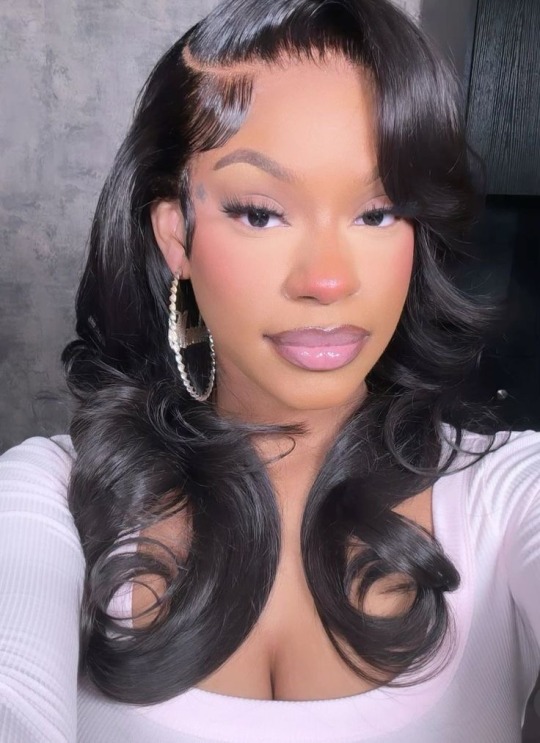

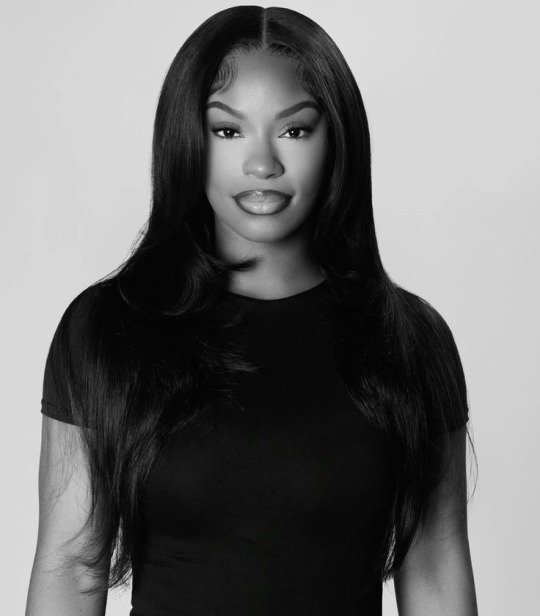

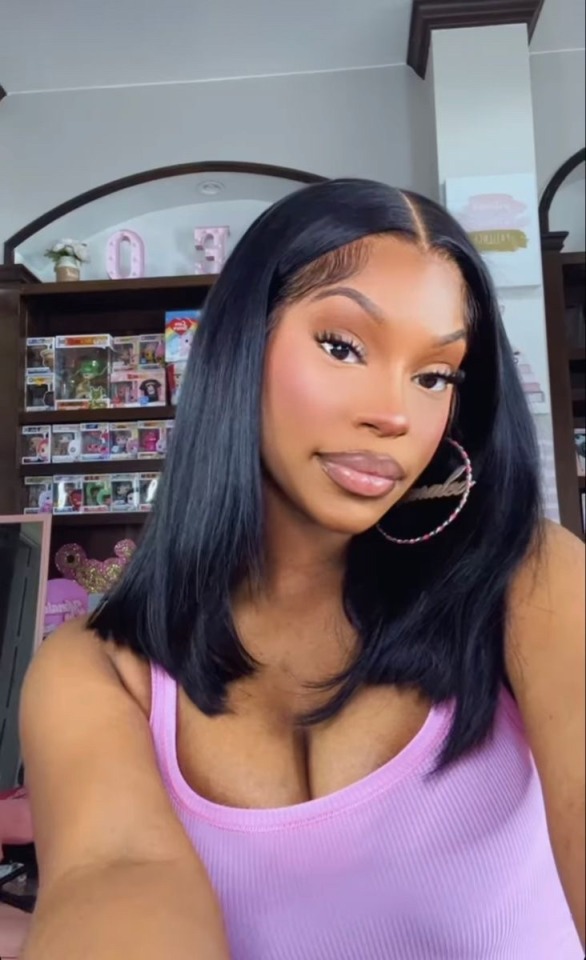

Monaleo
I just love her positive messages plus her music is lit🩷
IG: theMonaleo
TikTok: theMonaleo
#black girl aesthetic#black girl blogger#black girls of tumblr#pinterest#black girl joy#black girl magic#soft life#black girl beauty#luxury#monaleo#beating down the block#don who leo#pink girl#pink aesthetic#black girls are beautiful#soft girl era#black girl luxury#black women in luxury#pintrest girl#pink moodboard#positivity#girls girls girls#black girls rock#melanin#goals#goddess energy#feminine goddess#lifestyle
3K notes
·
View notes
Text
watching shows from the 2000s is like Wow! they really didn't let a woman on tv back then unless she was skinny and plucked her brows
#I Forgot About That! (← blocked it out to cope)#horrible decade for women tbh horrible decade to be a pre-teen or teen girl especially
700 notes
·
View notes
Text
Write a weak hero
Okay, first, what is weak? According to Oxford Dictionary, weak is lacking the power to perform physically demanding tasks; lacking physical strength and energy, or liable to break or give way under pressure; easily damaged.
That means, a weak hero is a character who isn't physically strong, mentally strong or even both.
So, how can we create a weak hero but do not make readers hate him/her? You will know after this post!
First, developing an effectively background
Unlike typical heroes who may have been born with incredible powers or had a dramatic origin story, the weak hero should come from a mundane background. They can be an ordinary person with nothing outstanding, a failure, etc. and suddenly have to shoulder the responsibility of "a hero" even though they don't want it.
Focus on their mundaneness and weakness. Describe the awkward situation where they are forced to become heroes. Why were they chosen to be heroes, when there are others who are more talented and powerful? What were the circumstances under which this happened? Make it as clear as possible.
Don't forget to describe their thoughts, feelings, and reactions. In their backstory, highlight times when the weak hero tried to be heroic or take on challenges, only to fall flat on their face. Was there a specific incident that shattered their self-esteem? Do they come from a family or environment that was overly critical? These past embarrassments and disappointments can inform their current self-doubts.
Use flashbacks strategically. Intersperse key backstory moments throughout the narrative to gradually reveal the hero's history and motivations, rather than dumping it all at once. This will help the reader better understand the character's journey and the reasons behind their reluctance to embrace the role of a hero.

Second, emphasizing their weakness
Focus on their mundane, everyday struggles. Rather than epic battles, the weak hero's conflicts should revolve around things like asking neighbors for help or failing to complete simple tasks.
You can also contrast them with stronger, more capable heroes. Have the weak hero regularly get overshadowed or overlooked by the more impressive feats of other characters.
The weak hero's ineptitude and frustrations can be a great source of comedy. So don't be afraid to poke fun at their failings :).

Third, slowly build towards small victories
If you want your weak hero to be liked by the readers, never let them be weak all the time. Drop subtle hints in the backstory that suggest the hero has untapped potential or unique talents that could one day be leveraged in unexpected ways, even if they don't realize it themselves.
Focus on the why. What made them become strong, or strive to become stronger? Is it a long-term motivation or a temporary one? Are they doing it for themselves or others? What will they do to overcome their weaknesses? Over time, the weak hero can learn to leverage their "useless" powers in clever ways and gain a little more confidence, even if they never become a heavy hitter.
And, remember to highlight their determination. Despite their shortcomings, the weak hero should possess an underlying stubbornness and refusal to give up. Showcase moments in their past where they persevered even when success seemed impossible.

Fourth, crafting challenges
When crafting challenges for a weak hero, you need to focus on obstacles that play to their specific limitations and insecurities. Here are some types of challenges a weak hero might face:
Outmatched in combat
The weak hero tries to take on a powerful villain, only to be easily overpowered by the villain's superior strength, speed, or abilities.
They get into a fight they can't win and have to rely on their wits or dumb luck to escape unscathed.
Inability to complete basic tasks
The weak hero struggles with simple everyday activities like opening a jar, fixing a leaky faucet, or assembling furniture.
These mundane challenges become major roadblocks that highlight their incompetence.
Social humiliation
The weak hero tries to interact with others, only to say the wrong thing and embarrass themselves.
They may attempt to flirt, negotiate, or simply make small talk, but end up flustered and socially awkward.
Lack of confidence
The weak hero doubts their abilities and has a hard time believing they can accomplish anything meaningful.
They may shrink away from opportunities to be heroic, worried they'll just mess things up.
Overbearing comparisons to stronger heroes
The weak hero is constantly overshadowed by the exploits of more powerful heroes, making them feel inadequate.
They may try to emulate the other heroes' successes, only to fail miserably.
Underestimation by villains
The villains dismiss the weak hero as harmless and ignore them, allowing the hero to stumble into accidentally foiling the villain's plans.
The villains may even make the mistake of toying with the weak hero, giving the hero a chance to catch them off guard.
The key is to create challenges that force the weak hero to rely on their limited abilities in creative ways. Gradually building their confidence through small wins can be a rewarding character arc.

Fifth, supportive relationships
The weak hero likely has friends, family members, or mentors who believe in them, even if the hero themselves does not. By including a support system of characters who see the weak hero's hidden potential, the narrative can strike a balance between the hero's self-doubt and the encouragement of those around them. These supporting characters can provide a counterpoint to the hero's negative self-perception, offering validation and pushing them to exceed their own expectations.
The interactions between the weak hero and their cheerleaders can also be a source of character development and emotional growth. As the hero gains confidence and finds ways to leverage their unique talents, the relationships with these supportive figures can evolve, deepening the overall narrative.
Supportive relationships can be of many types, but the most effective are:
A mentor figure who sees the hero's hidden strengths and pushes them to overcome their limitations.
A loyal friend who constantly encourages the hero and refuses to give up on them.
A capable sidekick or partner who can cover for the hero's weaknesses in battle.
A tech-savvy ally who develops gadgets or abilities to enhance the hero's limited powers.
A family member who provides unconditional love and acceptance, even when the hero doubts themselves.
A romantic interest who sees the hero's inner strength and brings out their best self.
A rival or adversary who recognizes the hero's true talents, forcing them to confront their own insecurities.
A renowned hero or role model who inspires the weak hero to strive for greatness, even if they don't believe they can achieve it.

It is not easy to create a weak hero. Crafting a compelling weak hero requires carefully balancing their flaws and insecurities with moments of growth and determination. You must find ways to make the character relatable and likable, despite their shortcomings, by highlighting their underlying potential and the support system that believes in them.
Hope you enjoy this. If you have any questions about writing, inbox me. I will answer as best as I can.
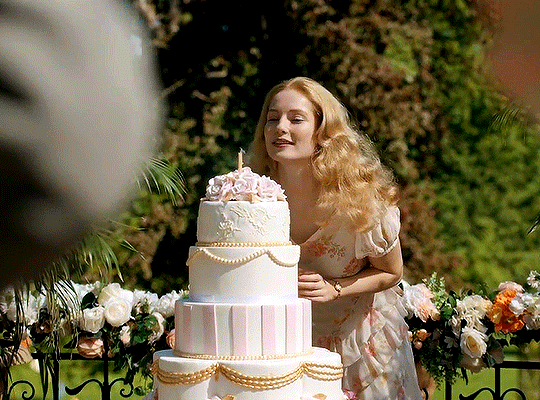
#writerscommunity#writers#writers on tumblr#writer things#writersociety#writblr#on writing#creative writing#writing#writeblr#writer#write#writings#writers and poets#writers block#ao3 writer#amwriting#writer problems#writer stuff#writer community#writer on tumblr#women writers#female writers#writers life#writing community#writing stuff#writing a book#writing prompt#writing advice#writing inspiration
565 notes
·
View notes
Text
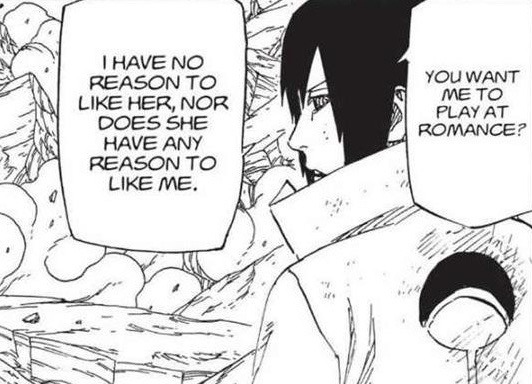
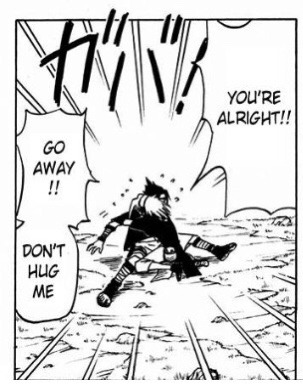

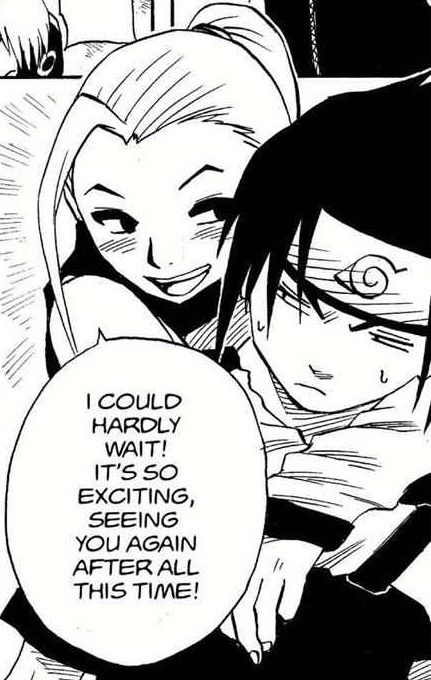
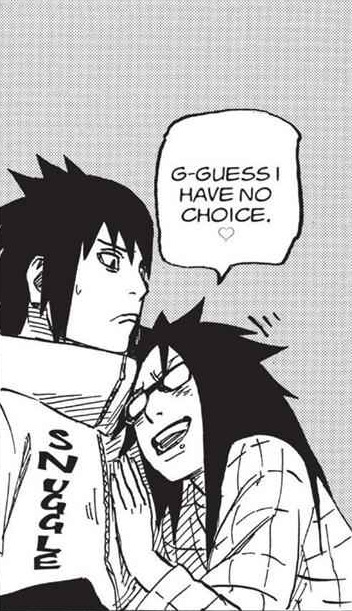
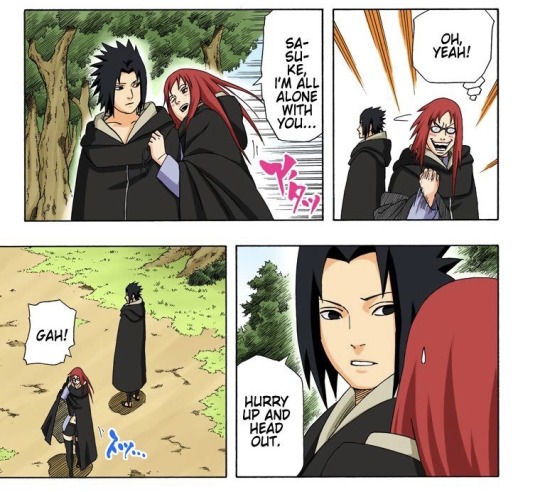
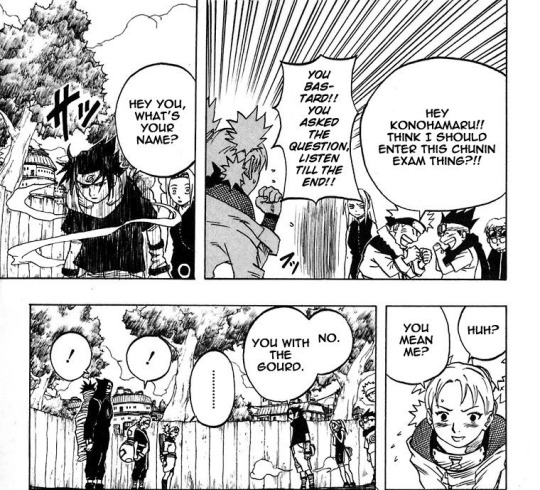
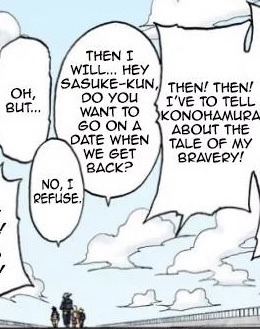
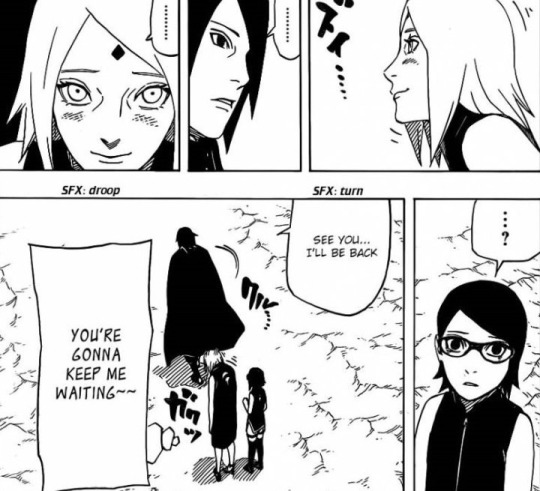
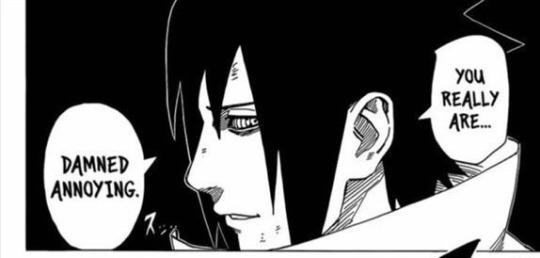
wild theory but guys i think sasuke doesn’t like women
#an anon asked me to web weave sasuke being gay a few weeks ago and i forgot so have this#i will probably do it when im not busy tho#mine#if u tag this calling sasuke a misogynist im blocking u btw#it’s getting tired. y’all should actually open the manga and realize that actually sasuke not being interested in women and rejecting them#their constant advances bluntly is not misogyny. and it’s weird y’all think he owns ppl smth because they like him in a way he doesn’t#reciprocates#especially when there’s actual canon misogynist characters in the series the fandom worships
579 notes
·
View notes
Text
old man yaoi this...old man yaoi that. The relatively scant amount of old woman yuri in this world sickens me. I want a pair of hardhearted old crones to find a little kindness in each other. I'll ship Granny Weatherwax and Nanny Ogg. You see if I won't.
#well there's also operatively not that many characters who are older women with personalities which is already a bit of a stumbling block#but this is just another head of the misogyny hydra. we slay it and will slay it again and again.
991 notes
·
View notes
Text
Honestly seeing that one bitch say that Halle Bailey has a "man cock" in addition to being so fucking racist and disgusting, was also really disheartening and served as a harsh and disturbing reminder that...it doesn't matter how pretty or feminine or soft and sweet and delicate you are as a Black woman, you could be all these traits superlative to any white woman on the planet, but as long as you're Black they will always find a way to call you a man...no matter what. As long as you are a Black woman you will be masculinized and have your femininity called into question. It's really hurtful.
#black women#misogynoir#masculinization of black women#and i'm pretty sure i already have enby-lgbtea blocked anyway#but still yuck
783 notes
·
View notes
Text
50 Character Personality Traits + Meanings (For writers, worldbuilders, and artists) Part 1
Adventurous - Enjoys trying new experiences and exploring the unknown.
Ambitious - Driven to succeed and achieve their goals.
Analytical - Tends to think critically and examine things in-depth.
Artistic - Highly creative and expresses themselves through artistic mediums.
Assertive - Confident in expressing their thoughts and feelings.
Caring - Shows compassion and concern for the well-being of others.
Charismatic - Has a natural charm and appeal that draws people in.
Clever - Able to come up with creative solutions and make astute observations.
Compassionate - Displays empathy and a desire to help those in need.
Confident - Believes in their own abilities and is self-assured.
Conscientious - Reliable, responsible, and attentive to detail.
Curious - Eager to learn new things and explore the world around them.
Cynical - Tends to be skeptical and distrustful of others' motives.
Dependable - Can be counted on to follow through on their commitments.
Determined - Persistent in pursuing their goals and overcoming challenges.
Diplomatic - Skilled at navigating social situations and resolving conflicts.
Eccentric - Displays unconventional or unusual behaviors and interests.
Empathetic - Able to understand and share the feelings of others.
Ethical - Guided by a strong moral compass and a sense of right and wrong.
Extraverted - Enjoys being around people and draws energy from social interactions.
Flexible - Adaptable to changes and open to trying new approaches.
Forgiving - Willing to let go of past hurts and give people second chances.
Friendly - Approachable and enjoys building positive relationships with others.
Grounded - Practical, down-to-earth, and focused on the present.
Hardworking - Diligent and dedicated in their efforts to achieve their goals.
Honest - Values truthfulness and integrity in their words and actions.
Idealistic - Driven by a vision of how the world should be and a desire to make a difference.
Imaginative - Possesses a rich inner world and creative problem-solving abilities.
Independent - Prefers to think and act for themselves without relying on others.
Indecisive - Struggles with making decisions and often second-guesses themselves.
Introverted - Finds energy and fulfillment in solitary activities and introspection.
Jealous - Experiences feelings of resentment or insecurity towards others.
Kind - Gentle, considerate, and thoughtful in their treatment of others.
Leaders - Able to inspire and guide others towards a common goal.
Logical - Approaches problems and decisions through a rational, analytical lens.
Materialistic - Highly values the acquisition of possessions and wealth.
Organized - Maintains order and efficiency in their personal and professional life.
Perfectionistic - Strives for flawlessness and can be overly critical of themselves and others.
Pessimistic - Tends to focus on the negative aspects of situations and expect the worst.
Resilient - Able to bounce back from setbacks and adapt to changes.
Risk-taker - Willing to take chances and step outside of their comfort zone.
Sarcastic - Uses irony and witty remarks to convey their thoughts and feelings.
Sensitive - Deeply affected by the emotions and experiences of themselves and others.
Stubborn - Unwilling to change their mind or compromise on their beliefs and opinions.
Suspicious - Inclined to doubt the motives and intentions of others.
Thoughtful - Considerate of the impact their words and actions have on others.
Timid - Shy, reserved, and hesitant to take risks or assert themselves.
Trustworthy - Reliable, honest, and worthy of confidence.
Unpredictable - Displays an element of surprise and spontaneity in their behavior.
Witty - Possesses a quick, clever, and humorous way of expressing themselves.
Hey fellow writers! I'm super excited to share that I've just launched a Tumblr community. I'm inviting all of you to join my community. All you have to do is fill out this Google form, and I'll personally send you an invitation to join the Write Right Society on Tumblr! Can't wait to see your posts!

#creative writing#writeblr#writing#thewriteadviceforwriters#on writing#writing tips#writers block#how to write#writers and poets#authors on tumblr#author#fiction#women writers#book writing#writer#writing advice#novel writing#writing blog#writer stuff#writers#writerscommunity#artists on tumblr#small artist#oc artist#world building#writersblock#writers on tumblr#helping writers#resources for writers#writerslife
3K notes
·
View notes
Text

#black girl moodboard#black girl aesthetic#black women#black girl luxury#blackgirlmagic#blacktumblr#soft life#black girl magic#black girl hair#melanin#soft moodboard#black love#blackout#black girls travel#braids#summer#block party#black girl#luxury lifestyle#rich black women#educated black women#black women in luxury#natural black women#black women hair#black girl in luxury#black women with braids#afro's#black girls of tumblr#black girl beauty#Baps
8K notes
·
View notes
Text






#creative block#writer's block#artist block#repressed anger#repressed trauma#emotional release#emotional regulation#mental health awareness#mental health#women's mental health#feminine energy#self healing#healing#girlblogging#this is a girlblog#girlposting#girl blogger#girl blog aesthetic#twitter#divine feminine
363 notes
·
View notes
Text
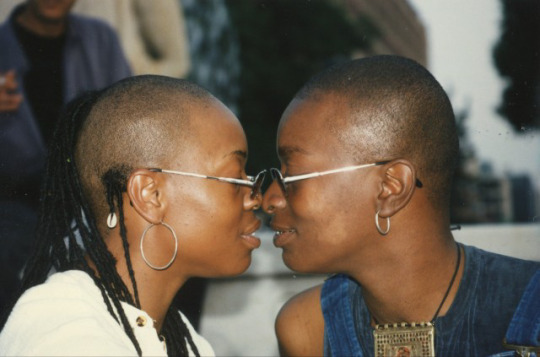

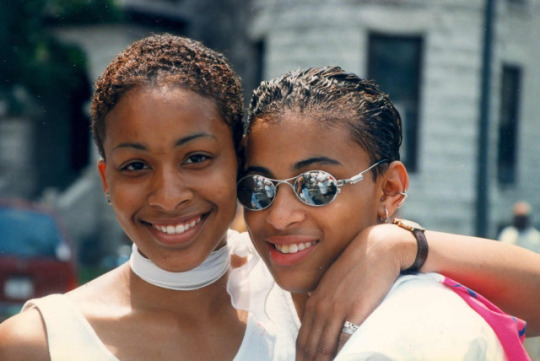

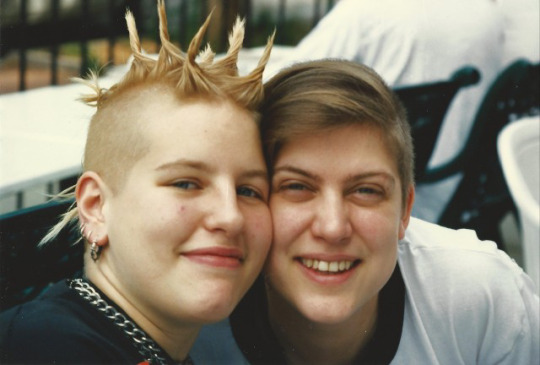

21st GAY PRIDE DAY PARADE, Washington DC (June 1996) by Elvert Barnes
#reposting because op had me blocked and this way i can single out women#these photos are too fucking cute#women#lb
637 notes
·
View notes